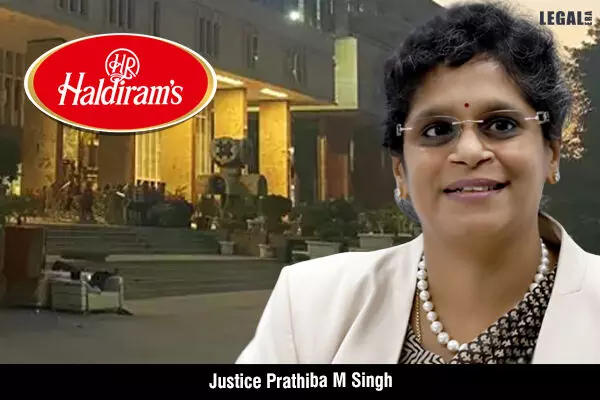- Home
- News
- Articles+
- Aerospace
- AI
- Agriculture
- Alternate Dispute Resolution
- Arbitration & Mediation
- Banking and Finance
- Bankruptcy
- Book Review
- Bribery & Corruption
- Commercial Litigation
- Competition Law
- Conference Reports
- Consumer Products
- Contract
- Corporate Governance
- Corporate Law
- Covid-19
- Cryptocurrency
- Cybersecurity
- Data Protection
- Defence
- Digital Economy
- E-commerce
- Employment Law
- Energy and Natural Resources
- Entertainment and Sports Law
- Environmental Law
- ESG
- FDI
- Food and Beverage
- Gaming
- Health Care
- IBC Diaries
- In Focus
- Inclusion & Diversity
- Insurance Law
- Intellectual Property
- International Law
- IP & Tech Era
- Know the Law
- Labour Laws
- Law & Policy and Regulation
- Litigation
- Litigation Funding
- Manufacturing
- Mergers & Acquisitions
- NFTs
- Privacy
- Private Equity
- Project Finance
- Real Estate
- Risk and Compliance
- Student Corner
- Take On Board
- Tax
- Technology Media and Telecom
- Tributes
- Viewpoint
- Zoom In
- Law Firms
- In-House
- Rankings
- E-Magazine
- Legal Era TV
- Events
- News
- Articles
- Aerospace
- AI
- Agriculture
- Alternate Dispute Resolution
- Arbitration & Mediation
- Banking and Finance
- Bankruptcy
- Book Review
- Bribery & Corruption
- Commercial Litigation
- Competition Law
- Conference Reports
- Consumer Products
- Contract
- Corporate Governance
- Corporate Law
- Covid-19
- Cryptocurrency
- Cybersecurity
- Data Protection
- Defence
- Digital Economy
- E-commerce
- Employment Law
- Energy and Natural Resources
- Entertainment and Sports Law
- Environmental Law
- ESG
- FDI
- Food and Beverage
- Gaming
- Health Care
- IBC Diaries
- In Focus
- Inclusion & Diversity
- Insurance Law
- Intellectual Property
- International Law
- IP & Tech Era
- Know the Law
- Labour Laws
- Law & Policy and Regulation
- Litigation
- Litigation Funding
- Manufacturing
- Mergers & Acquisitions
- NFTs
- Privacy
- Private Equity
- Project Finance
- Real Estate
- Risk and Compliance
- Student Corner
- Take On Board
- Tax
- Technology Media and Telecom
- Tributes
- Viewpoint
- Zoom In
- Law Firms
- In-House
- Rankings
- E-Magazine
- Legal Era TV
- Events
Delhi High Court Declares Haldiram A Well-Known Brand Under Trade Marks Act

Delhi High Court Declares Haldiram A Well-Known Brand Under Trade Marks Act
States that it possessed the assurance of quality that extended beyond geographical confines
The Delhi High Court has declared ‘Haldiram’ and the brand’s red oval-shaped logo as a well-known trademark in food items, restaurants and eateries.
In the Haldiram India Pvt Ltd v. Berachah Sales Corporation & Ors case, the bench of Justice Prathiba M Singh passed the order on observing that since the 1960s, Haldiram was using the mark.
Haldiram had filed a plea seeking a declaration that the ‘Haldiram’ mark and its variations like ‘Haldiram Bhujiawala’ should be declared well-known under Section 2(1)(zg) of the Trade Marks Act, 1999.
The company also sought to restrain certain people from using the marks deceptively similar to its own.
The court stated, “Based on the averments in the plaint, the documents on record, and the reputation of Haldiram, it is clear that the plaintiffs' mark and the oval-shaped logo, have acquired well-known status. Considering the use of the mark since the 1960s in the food industry, and the factors outlined above, these have achieved the status of a 'well-known mark'. Accordingly, a decree of declaration declaring the mark and the logo as a well-known’ mark regarding food items, restaurants and eateries, is granted.”
While stating that the concept of a ‘well-known’ mark was ‘dynamic’, the bench acknowledged it possessed the “ability to imbue products with distinctiveness and assurance of quality that extends beyond mere geographical confines.”
It added, “The plaintiff exports its products not just within Asia, but also to other countries. Therefore, the claim for 'Haldiram' to be recognized as a 'well-known' mark throughout India, including West Bengal, is a testament to the plaintiff’s cultural and commercial imprint. Such dynamism aims to safeguard the goodwill and trust the mark commands among consumers, irrespective of territorial divisions. By granting such a declaration, the court is also aware of the present realities of consumer perception related to the average consumers in the food and snacks industry.”
The court emphasized that though there may be a division between family members of the company territorially, it would not affect the decision in declaring the ‘Haldiram’ mark as well-known.
While ruling in Haldiram’s support, the bench ordered, “Considering the declaration granted in favor of the plaintiff and the decree passed, all trademark applications filed by the defendant’s seeking registration of ‘Haldiram’ and ‘Haldiram Bhujiyawala’ shall be rejected by the Registrar of Trademarks. Let the plaintiff provide details of the applications filed by the defendants related to the marks within one week to the office of the CGPDTM.”
Haldiram was represented by advocates Neeraj Grover, Arpita Mishra, Kashish Sethi, Sunidhi Gupta, Ayushi Chandra and Ritu Khandelwal.


